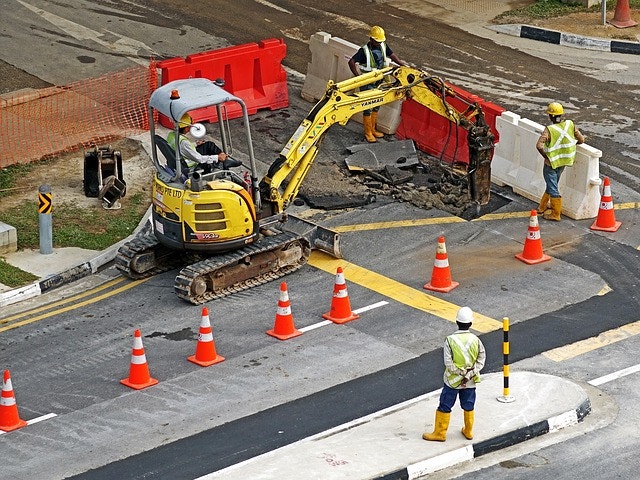Are You Serious About Safety Precautions or Just Following Standard Procedures?
- Nov 9, 2013
 If you randomly asked someone what workplace safety entails, the average person might imagine things such as high visibility gear, hard hats and danger signs. Others may cringe at the memory of attending safety training classes, having to follow seemingly ridiculous procedures on the job and acquiring copious amounts of useless safety pamphlets and papers.
If you randomly asked someone what workplace safety entails, the average person might imagine things such as high visibility gear, hard hats and danger signs. Others may cringe at the memory of attending safety training classes, having to follow seemingly ridiculous procedures on the job and acquiring copious amounts of useless safety pamphlets and papers.Everyone has their own position on workplace safety. Some take it very seriously, while others understand the dangers but tend to occasionally cut corners. Depending on the job and the situation, many are willing to completely ignore certain safety practices in an effort to get the job done. Some people ignore safety procedure under a circumstance where it could only put themselves at higher risk, while others completely disregard the safety of co-workers and/or the public.
When I talk about "people" I mean workers, employers, contractors, inspectors, officials, etc. Safety applies to each and every person involved in a project, a jobsite, a manufacturing plant, or a warehouse. Whether you're surveying land for a potential project, purchasing an insurance policy for a massive industrial project or fitting pipe on an offshore rig, you have a certain responsibility when it comes to safety. There's the physical safety of yourself, the safety of those working around you and the safety of others who might be working there years down the road. Also, the safety of the general public, the environment and anyone or anything else who might be serviced or affected in any way as a direct result of the work you're involved with.
Could your decisions in regard to safety procedures result in someone being injured in the future while trying to make repairs or adjustments to something you've worked on? Is "good enough for now" really good enough? Think about that for a moment.
From another angle, let's say you ALWAYS follow procedure. You'd rather not be responsible for an accident and you want to perform your job in flawless fashion. Maybe you're the type to take additional steps that aren't required, just as an extra measure to increase safety or the quality of your work. While that's a respectable position to be in, ask yourself where you draw the line for yourself?
Aside from your own decisions at work, there are many others who make decisions that affect safety. All kinds of different decisions. From repouring an unsafe concrete wall to stacking heavy parts on a damaged pallet. From an old faulty electrical cord to highly caustic chemicals, from a machine's intentionally bypassed safety switch to a simple signature of approval on a construction inspection.
Are you willing to work without a respirator if your employer won't provide them? Are you willing to save money by not providing respirators to employees while risking possible health issues in the future? If a replacement part is needed but the proper part isn't readily available, would you substitute one that isn't rated for the proper strength? Are you going to climb up on a decaying scaffolding because you know you're employer isn't willing to purchase new equipment, or are you going to verbalize your right to a safe work environment?
Everyday, safety procedures and best practices are ignored. While many accidents are avoided and prevented, many still occur due to nothing other than neglect. From a gravel truck with dangerously worn tires to a simple leaky valve on a high pressure tank, there are always accidents waiting to happen - but for what? To save time or money? To bet against the odds or to assume the probability of an accident is low? Because you assume an accident "probably won't happen"?
As employees, you have a job to do. Your responsibility is to work so you can provide for yourself. You should take pride in your skills and abilities and consider them important. Equally, you should value yourself and your safety on the job.
As an employer, you have the responsibility to provide a reasonably safe working environment for your employees. After all, without them you cannot profit. And is cutting a corner or two at the risk of worker safety really worth it when that unexpected accident happens and you're the one who's responsible? Do you want to be the contractor responsible for a structural failure because a larger profit margin was took precedence over safety regulations?
Whatever your situation is, understand that you can only prevent or reduce accidents in the workplace by making responsible decisions. A few minutes more or a couple of extra dollars is a small price to pay for enhanced safety and a job done right. Failure to make the right decision or an unwillingness to make small sacrifices in the workplace can result in a lifetime of regret and hardship for both yourself and others. While mistakes will happen, there is never a legitimate excuse for neglect.
Next time a situation arises and you have a decision to make in regards to safety, consider perceiving it as a serious precaution - not just another standard procedure.






